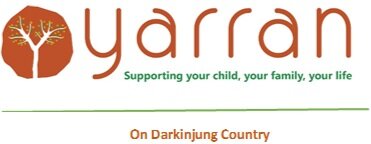Occupational Therapist Job Description
Supports delivered in natural environments including the home, childcare preschool, early childhood community activities and school of the parent choice.
To fully implement all aspects of the Routine Based intervention.
To focus on the domains for children of engagement, independence, and social participation.
To support the family with emotional, material, and informational support.
To be responsive & flexible to each family’s individual circumstances, needs & goals for accessing early childhood intervention for their child.
To implement the key principles of emotional support, information and advice to families, advocacy, service coordination.
To develop an individual support plan for each child’s goals, identifying strategies to be implemented in daily routines and activities. Goals are to be family centred. Skills and capacity of individual families are to be considered when developing strategies to achieve each goal.
To evaluate the child’s progress in the final review, reflecting on outcomes of support.
To maintain high quality and effective verbal and written communication with the CEO, child’s family, childcare staff or teachers, and their Early childhood Intervention Educators and Therapy Assistant.
To provide parents and teachers/educators with updates after each visit of their child’s progress in relation to their individual support plan.
To consult with other Yarran team members on the child’s progress, outcomes and plan organising joint visits when needed
To perform a variety of standardised and non-standardised tests to assess each child’s development and progress.
To provide age and developmentally appropriate toys, activities, and resources to guide and implement play-based session. If the family require specific toys and activities to work on recommended strategies, then toys are to be take and left with the family between visits.
In the child-care centre you will utilise the toys, equipment, daily routines & group time available in the centre.
To model teaching strategies & techniques to the family member involved in the home session.
To help the family implement the strategies into their daily routines & activities that promote the child’s skill development & increase the confidence of the families to develop their own child’s skills. This may include developing visual communication systems, social stories, signing, sensory processing activities & behaviour strategies adapting support plans into home activities & daily routines.
To model, give strategies, recommendations and provide resources that will assist the child’s enrolment & sustain their attendance in natural environments or settings.
To provide practical strategies and supports that promote the children & family’s inclusion within their childcare playgroup/preschool, school & local community.
To strengthen & develop mainstream children’s services and school’s capacities to provide early childhood supports within their daily programs promoting children with disabilities’ inclusion & sustains their enrolment /participation in local community activities.
To support transitions in the child’s life, including transitioning to the older room at preschool, from playgroup to a preschool /childcare setting, to school, from kindergarten to first class etc. This program can help support the child & family & childcare workers with these transitions.
To develop the child’s functional & adaptive skills in their natural settings, expanding their skills in the contexts the child needs to be successful in & in ways that promotes their inclusion and family’s satisfaction with their daily routines.
Strategies will promote the inclusion of the child and any dysregulation and communication challenges therefore maintaining the child’s enrolment in childcare and in school.
To develop the capacity, positive attitude and acceptance of mainstream activities & playgroups and families to include children with disabilities & their families.
To evaluate and document the child’s responses & progress to the support plan & the inclusive strategies developed.
To complete documentation that records the family’ level of satisfaction with the outcomes achieved for their child.
To gather data that documents & evaluates each child’s support plan.
Research relevant therapy information, best practice and current information for policy development and staff training as requested by the CEO.
To recommend and/or trial equipment to meet the specific needs of the child and to allow inclusion in natural settings and daily routines. Equipment prescription to remain within the scope of your profession.
To complete any assessment that may be required or requested.
